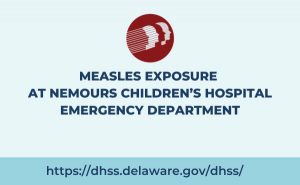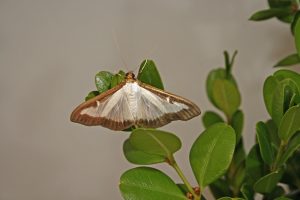DOVER (June 21, 2013) – As if the great numbers of mosquitoes expected to hatch from recent heavy rainfall in Delaware weren’t enough of a reminder, the American Mosquito Control Association has declared the week of June 23-29 as the 17th annual National Mosquito Control Awareness Week.
In observance of the event, Delaware’s Mosquito Control Section is encouraging Delawareans to take precautions to avoid or reduce mosquito bites, and to put particular emphasis on eliminating backyard mosquito-producing habitat. “As a sustaining member of the American Mosquito Control Association, the Delaware Mosquito Control Section joins with our AMCA colleagues around the country in pointing to all our good labors for making modern life as mosquito-free as possible, or at least tolerable compared to horrendous infestation conditions from past eras,” said Dr. William Meredith, DNREC Mosquito Control Section administrator and past president of the AMCA. “But we can’t achieve all of this on our own, so we urge property owners to help us – and help themselves, too – by practicing good water sanitation on their lands.”
With the large amounts of rain the state has received this month, there are plenty of natural sources for mosquitoes, and Mosquito Control Section staff is working hard to control the large numbers of mosquitoes that may emerge from these natural habitats. However, staying on top of the many artificial habitats and sources of standing water requires the help of homeowners throughout the state. The best medicine for mosquitoes is prevention, and it’s easy to make a difference in your community by eliminating as much standing water from your yard and from artificial containers on your property as possible and encouraging your neighbors to do the same.
The growing population of Asian tiger mosquitoes is of particular concern with artificial container habitats. The Asian tiger mosquito is an aggressive, daytime biter distinguished by its white stripes on a black body. Asian tiger mosquitoes lay eggs and hatch from tarps, flower pots, boats, tires, rain gutters, corrugated pipes (especially ones connected to downspouts) – anything around your yard that can collect water. These nuisance mosquitoes don’t fly more than several hundred yards from where they are born, so that means that if you have this type, the source is very likely your yard or one of your immediate neighbors. Removal of even the smallest amounts of standing water in artificial containers from your property will help reduce or eliminate these mosquitoes from your area.
If you can’t eliminate the mosquitoes from your area, remember to protect yourself from mosquito bites by avoiding outdoor activities during peak mosquito times (dusk to dawn), wearing long sleeves and long pants, and/or properly using mosquito repellent.
Also: To help the Mosquito Control Section determine when and where to provide control services, please report intolerable numbers of biting mosquitoes as follows:
- New Castle County and northern Kent County from Dover north, call Mosquito Control’s Glasgow office at 302-836-2555
- Remainder of southern Kent County and all of Sussex County, call Mosquito Control’s Milford office at 302-422-1512
For more information on Delaware Mosquito Control, or to request mosquito control service, residents of New Castle County and northern Kent County, including Dover, Little Creek, Kitts Hummock, and Hartly, can call the Glasgow Office at 302-836-2555. Residents of Sussex County and southern Kent County including, Marydel, Camden-Wyoming, and Magnolia, can call the Milford Office at 302-422-1512.
Advance public notice of when and where spraying will occur is given daily via radio announcements, by calling 800-338-8181 toll-free, or by visiting http://www.dnrec.delaware.gov/fw/Services/Pages/MosquitoSection.aspx. Interested parties may also subscribe to receive email notices by visiting the DNREC homepage – click on “Email List Subscription” under Services and follow directions to sign up for mosquito control spray announcements.
For more information about Delaware’s Mosquito Control program, call 302-739-9917.
Vol. 43, No. 255
Contact: Michael Globetti, DNREC Public Affairs, 302-739-9902
-30-



















































































